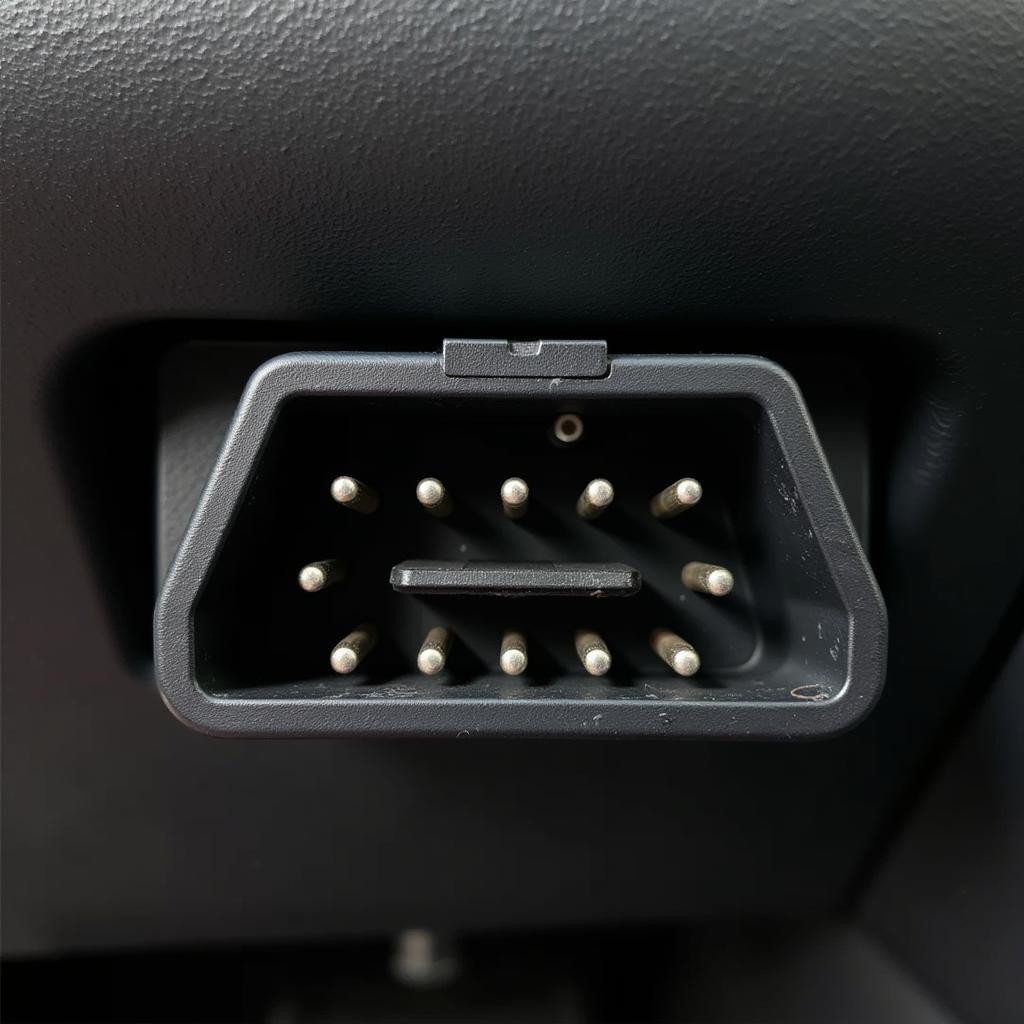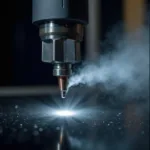OBD2, or On-Board Diagnostics, is a vehicle’s self-diagnostic and reporting system. But what does OBD2 mean for you as a car owner? It means access to a wealth of information about your car’s health, performance, and even your driving habits.
Decoding OBD2: What it is and Why it Matters
Since the mid-1990s, OBD2 has become a standard feature in vehicles, acting like your car’s internal communication network. This system continuously monitors emissions, engine performance, and other critical components. When a problem arises, the OBD2 system generates a diagnostic trouble code (DTC), which is essentially a code that pinpoints the issue.
Unlocking Your Car’s Secrets: The Power of OBD2 Scanners
This is where OBD2 scanners come in. These handy devices plug into your vehicle’s OBD2 port, allowing you to:
- Retrieve and interpret DTCs: Understand what those cryptic codes mean and gain insight into your car’s problem.
- Reset Check Engine Light: After addressing the underlying issue, you can use an OBD2 scanner to turn off the check engine light.
- Access Real-Time Data: Monitor live engine parameters such as speed, RPM, coolant temperature, and more. This data can help you identify potential problems early on and improve fuel efficiency.
Types of OBD2 Scanners: Finding the Right Fit for You
OBD2 scanners come in a variety of shapes and sizes, from basic code readers to advanced professional-grade tools.
- Basic Code Readers: These entry-level scanners are budget-friendly and perfect for DIY enthusiasts who want to read and clear basic DTCs.
- Bluetooth Scanners: These versatile scanners connect to your smartphone or tablet, providing a user-friendly interface and access to advanced features such as live data graphing and trip logging.
- Professional-Grade Scanners: These high-end scanners offer the most comprehensive features, including bi-directional control (the ability to interact with vehicle systems), advanced coding capabilities, and access to manufacturer-specific data.
OBD2: Empowering Car Owners and Mechanics Alike
OBD2 scanners have revolutionized the way we diagnose and repair vehicles. For car owners, they provide:
- Early Problem Detection: Identifying potential issues early can save you time, money, and headaches down the road.
- Informed Repair Decisions: Understanding the source of the problem can help you make more informed decisions about repairs, avoiding unnecessary costs.
- Increased Vehicle Knowledge: OBD2 scanners give you a deeper understanding of how your car works and its overall health.
For mechanics, OBD2 scanners are an indispensable tool, enabling faster and more accurate diagnoses.
Beyond Diagnostics: The Future of OBD2
OBD2 technology is constantly evolving. Newer vehicles are equipped with more sophisticated systems that generate a wider range of data. This data can be used to:
- Track Vehicle Location and Usage: Valuable information for fleet management and insurance purposes.
- Monitor Driver Behavior: Encouraging safer driving habits and potentially reducing insurance premiums.
- Enable Predictive Maintenance: By analyzing historical data, OBD2 systems can predict potential component failures before they occur, minimizing downtime and repair costs.
Conclusion
OBD2 has transformed the automotive industry, providing a standardized way to access and interpret vehicle data. Whether you’re a car enthusiast or a professional mechanic, understanding OBD2 and utilizing its capabilities can empower you with valuable insights into your vehicle’s health, performance, and even your driving habits. Embrace the power of OBD2 and take control of your driving experience.
Frequently Asked Questions About OBD2
1. Do all cars have an OBD2 port?
All gasoline cars manufactured since 1996 and diesel cars manufactured since 1997 sold in the United States are required to have an OBD2 port.
2. Can I leave my OBD2 scanner plugged in all the time?
While it’s generally safe to leave a basic OBD2 scanner plugged in for short periods, it’s recommended to unplug it when not in use, especially in older vehicles.
3. What is the difference between OBD and OBD2?
OBD (On-Board Diagnostics) is a general term, while OBD2 is a standardized version introduced in the mid-1990s with stricter requirements and a universal connector.
4. Can an OBD2 scanner tell me why my car won’t start?
Yes, an OBD2 scanner can read codes related to the engine, battery, and other starting system components, potentially pinpointing the cause of the starting issue.
5. Can I use an OBD2 scanner on multiple vehicles?
Yes, OBD2 scanners are compatible with most vehicles that have a standard OBD2 port.
6. Is it legal to use an OBD2 scanner while driving?
While using an OBD2 scanner itself is legal, it’s crucial to prioritize safe driving and avoid any distractions while the vehicle is in motion.
7. Where can I find reliable information about specific OBD2 codes?
You can find detailed information about specific OBD2 codes in your vehicle’s repair manual or online resources. Websites like OBDFree provide comprehensive code definitions and troubleshooting guides.
Still have questions? Check out these helpful resources:
Need expert advice? Contact us!
Our team of automotive experts is here to assist you. Reach out via WhatsApp at +1(641)206-8880 or email us at [email protected]. We’re available 24/7 to answer your questions and provide personalized support.

